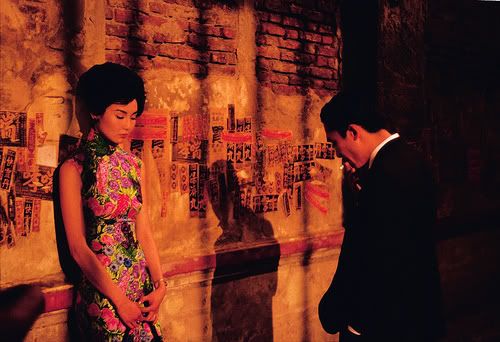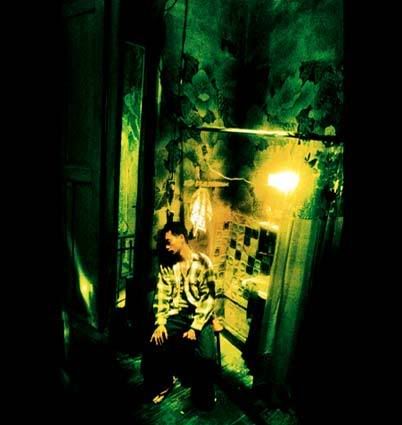Christopher Doyle is a cinematographer who has worked on quite a handful of movies, personal favorites being Last Life in the Universe (Trailer) Paranoid Park, & In the Mood for Love (among other Wong Kar Wai films). If you've ever seen any of his films you'll recognize the guttural blow when he leaves images of amazing beauty just hanging on the screen.




I left Australia when I was 18 and I've been a foreigner for 36 years. I think that's very important to the way I work because as a foreigner you see things differently. But I started making Chinese-language films so I regard myself as a Chinese filmmaker. I just happen to be white. Or pink, actually.
I really think music and movement - dance, you know - and literature inform my visuals. I think film is also based in dance. The relationship between me, the camera and the actor is always a dance.
I went to France and tried to learn cinematography. Then I realized that I didn't care. So I came back to making films as I could. I think I started to know what I was doing in the middle of "Days of Being Wild" (in 1991). You can't learn how to make films. You gotta make mistakes and you have to appropriate the mistakes, and then you learn from those things. Then you have a voice.
I went to Taiwan to study Chinese and, as usual, I hung out in bars, and people in bars are usually musicians and artistic kinds of people. I had accumulated a little life experience so I could articulate things which were a little bit more complex than I could actually do and for some reason Edward Yang trusted me. And then we made this film ("That Day on the Beach," 1983) that won all these awards and I didn't know what I was doing. I fluked it.
My best film is always my next film. I couldn't make Chungking Express now, because of the way I live and drink I've forgotten how I did it. I don't believe in film school or film theory. Just try and get in there and make the bloody film, do good work and be with people you love.
For years most people didn't know I wasn't yellow. Du Ke Fung [his Chinese name] means `like the wind'. It's an extremely poetic name, as opposed to this piece of shit sitting before you. So this person called Du Ke Fung with no past or parents or ID card makes the films and at night he turns back into this drunkard called Chris Doyle.
Looks like we got it right on Hero and if you get it right the eye connects directly with the heart, doesn't matter what the language is. But Hollywood has fallen into making mechanistic, assembly-line movies. Now they have to steal ideas from Asia because that's where the originality is. I have a very strong identification with Asia, there's a different type of energy there, and I had a delayed adolescence in China so I feel I grew up there.
I was born Australian but I'm more Francis Bacon than Mel Gibson, who is the antithesis of me. Actually, I always wanted to be the Mick Jagger of cinema but I think I'm the Keith Richards, by force of habit, perhaps.
I didn't start making films until I was 34.But that wasted youth was probably the most valuable asset for what I'm doing now. You see the world, you end up in jail three or four times, you accumulate experience. And it gives you something to say. If you don't have anything to say then you shouldn't be making films. It's nothing to do with what lens you're using.
I think what we're doing here [Asia] is much more valid. We've got half the world's population here. The implications are as evident as they would be for the French New Wave.
The idea is becoming a blueprint. The visual aspect of film is expanding, we're evolving a new relationship with film-making over here [Asia]. I really think we've moved beyond all that auteur theory. People will have to come up with a different theory for what we're doing here.
The East is rising and the energy of the region is reflected in everything we do here, whether commercial, military or cinematic. I just happen to be part of that. We're in a golden age of cinematography. Most people are on-line at least four hours a day. They're seeing images all the time and their visual sophistication is jumping far beyond all the old farts in the Academy.
"I was born five months after my parents were married, so I understand why mistakes have informed my world."
"I feel that 2046 is unnecessary, in retrospect. I think probably Wong Kar-Wai realized that somewhere, and that's why it took so long. You do realize that you have basically said what you needed to say, so why say more? I feel that way. I think you have to move on."
"What I'm trying to do is make the camera-work lyrical rather than fragmentary. It's a dance between the camera and the actors."
1 comment:
Nice post on Chris Doyle.
Post a Comment